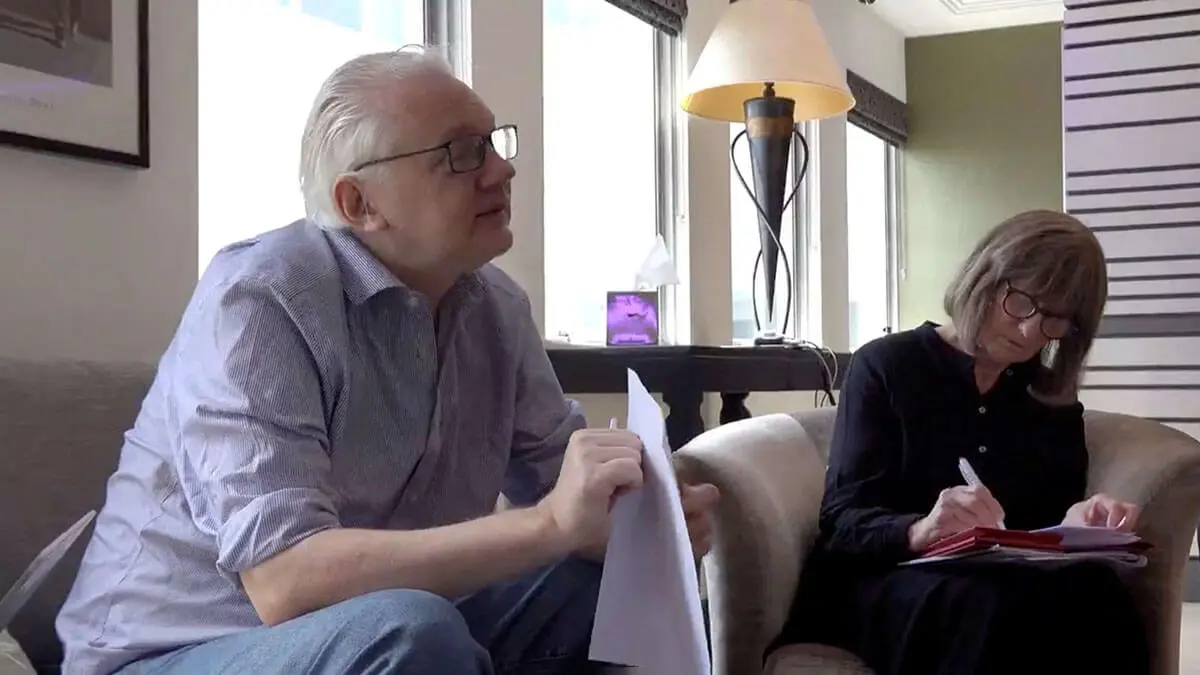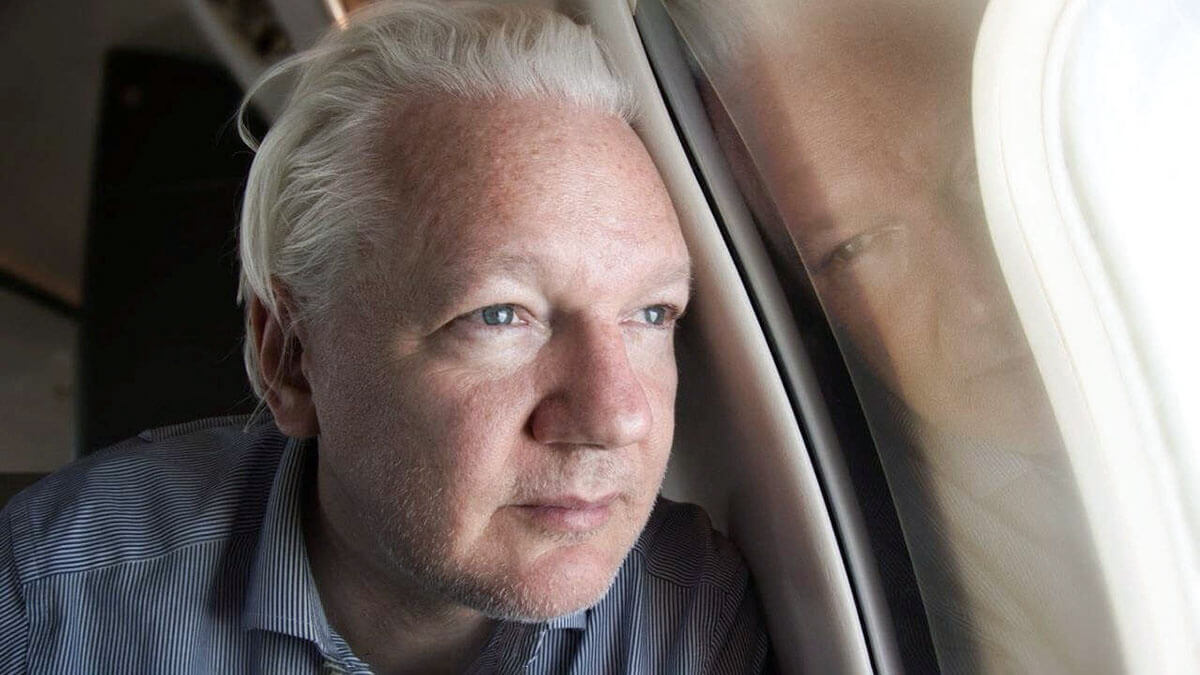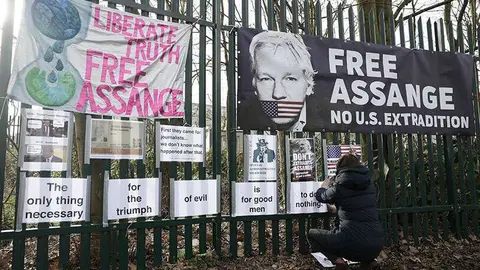Julian Assange on the verge of freedom after a deal with the US justice system

After years of legal wrangling, Julian Assange, released from a UK jail, travelled on Tuesday to a US Pacific island where the WikiLeaks founder will plead guilty in court as part of a deal that will allow him to regain his freedom.
Pursued by US authorities for disclosing hundreds of thousands of confidential documents, the 52-year-old Australian will appear in federal court in the Northern Mariana Islands, a US territory in the Pacific, at 09:00 local time (23:00 GMT Tuesday) on Wednesday, according to court documents released early Tuesday.
Julian Assange is free! and released from the UK and the high-security prison where he had been held since 2019, WikiLeaks said on the X network. The organisation, which released a 13-second video showing him boarding a plane, said he took a flight out of London's Stansted airport.
The plane landed in Bangkok at around 12.30am (05.30am GMT) for a technical stopover, AFP reporters said.
The plane took off for Saipan in the Northern Mariana Islands, a Thai official said.
There, he is expected to plead guilty to "conspiracy to obtain and disclose information relating to national defence", according to court documents.
"Secret diplomacy"
Assange could be sentenced to 62 months in jail, but because he has served similar time on remand in London he is expected to be able to return at liberty to Australia.
His wife, Stella Assange, expressed "immense gratitude" to those who have mobilised "for years" to make his release a "reality".
Assange "will be a free man once the agreement is ratified by the judge" on Wednesday, his wife and mother of two of his children told the BBC.
The deal involves her husband pleading guilty to one charge, which relates to "obtaining and disclosing national defence information", she said.
His mother, Christine Assange, said she was grateful that her son's "ordeal" was coming to an end. "This shows the importance and power of secret diplomacy," she said.
The Australian government reacted by saying that the Assange case had "gone on too long" and that his detention was no longer of any interest.
The UN High Commissioner for Human Rights also welcomed his release and "significant progress towards a definitive resolution of this case".
"As we have repeatedly said, this case raised a number of human rights concerns," said spokesperson Elizabeth Throssel.
"He should not have been deprived of his liberty for a day for publishing information in the public interest," said Rebecca Vincent, campaign director for Reporters Without Borders.
Stella Assange has launched an appeal for funding to cover the 520,000 dollars her husband has to pay back to the Australian government after chartering the flight between London and Australia.

A 14-year saga
The agreement, which ends a nearly 14-year saga, including seven years of confinement at the Ecuadorian embassy in London, comes two weeks before another key hearing in the British courts.
Assange's appeal against his extradition to the United States was expected to be heard on 9-10 July.
Since 2019, when he was detained in a high-security prison in London, Assange has been fighting to avoid being handed over to the US justice system, which is pursuing him for publishing more than 700,000 confidential documents on military and diplomatic activities, particularly in Iraq and Afghanistan.
The Australian, charged with 18 counts, faced up to 175 years in prison under the Espionage Act.
The British government approved his extradition in June 2022. However, in May two judges granted him the right to appeal.
Seven years in the Ecuadorian Embassy
The WikiLeaks founder was arrested by British police in April 2019 after spending seven years holed up in the Ecuadorian Embassy in London, from where he sought to avoid extradition to Sweden in a rape investigation, which was dismissed later that year.
In recent years there had been increasing calls for US President Joe Biden to drop the charges against him. Australia made a formal request in February, which the Democratic leader said he was considering.
"That the (Australian) prime minister (Anthony Albanese) sometimes said publicly 'enough is enough', and that parliament backed him up, was significant and absolutely contemplated by the United States," Emma Shortis, a researcher on international and security affairs at think tank The Australia Institute, told AFP.









